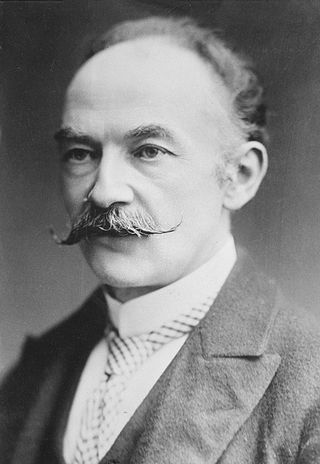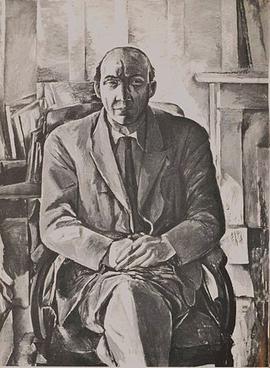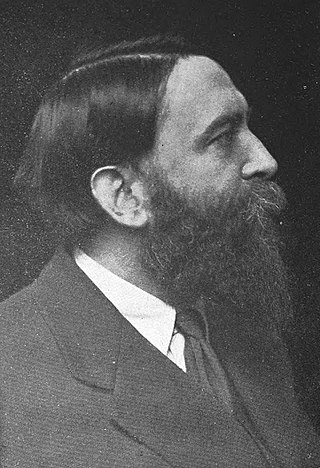Related Research Articles

Thomas Hardy was an English novelist and poet. A Victorian realist in the tradition of George Eliot, he was influenced both in his novels and in his poetry by Romanticism, including the poetry of William Wordsworth. He was highly critical of much in Victorian society, especially on the declining status of rural people in Britain, such as those from his native South West England.
Layamon or Laghamon – spelled Laȝamon or Laȝamonn in his time, occasionally written Lawman – was an English poet of the late 12th/early 13th century and author of the Brut, a notable work that was the first to present the legends of Arthur and the Knights of the Round Table in English poetry.
William Habington was an English poet.

George Granville Barker was an English poet, identified with the New Apocalyptics movement, which reacted against 1930s realism with mythical and surrealistic themes. His long liaison with Elizabeth Smart was the subject of her cult-novel By Grand Central Station I Sat Down and Wept.
Thomas Rymer was an English poet, critic, antiquary and historian. His lasting contribution was to compile and publish 16 volumes of the first edition of Foedera, a work in 20 volumes conveying agreements between The Crown of England and foreign powers since 1101. He held the office of English Historiographer Royal from 1692 to 1714. He is credited with coining the phrase "poetic justice" in The Tragedies of the Last Age Consider'd (1678).
The New Apocalyptics were a poetry grouping in the United Kingdom in the 1940s, taking their name from the anthology The New Apocalypse (1939), which was edited by J. F. Hendry (1912–1986) and Henry Treece. There followed the further anthologies The White Horseman (1941) and The Crown and Sickle (1944).

Gordon Bottomley was an English poet, known particularly for his verse dramas. He was partly disabled by tubercular illness. His main influences were the later Victorian Romantic poets, the Pre-Raphaelites and William Morris.
Poems of 1912–1913 are an elegiac sequence written by Thomas Hardy in response to the death of his wife Emma, in November 1912. An unsentimental meditation upon a complex marriage, the sequence's emotional honesty and direct style made its poems some of the most effective and best-loved lyrics in the English language.

The Kailyard school is a proposed literary movement of Scottish fiction; kailyard works were published and were most popular roughly from 1880–1914. The term originated from literary critics who mostly disparaged the works said to be within the school; it was not a term of self-identification used by authors alleged to be within it. According to these critics, kailyard literature depicted an idealised version of rural Scottish life, and was typically unchallenging and sentimental.

The Della Cruscans were a circle of European late-18th-century sentimental poets founded by Robert Merry (1755–98).
Satires of Circumstance is a collection of poems by English poet Thomas Hardy, and was published in 1914. It includes the 18 poem sequence Poems 1912-13 on the death of Hardy's wife Emma - extended to the now-classic 21 poems in Collected Poems of 1919 - widely regarded to comprise the best work of his poetic career.
Wessex Poems and Other Verses is a collection of fifty-one poems set against the bleak and forbidding Dorset landscape by English writer Thomas Hardy. It was first published in London and New York in 1898 by Harper Brothers, and contained a number of illustrations by the author himself.
John Hamilton Reynolds was an English poet, satirist, critic, and playwright. He was a close friend and correspondent of poet John Keats, whose letters to Reynolds constitute a significant body of Keats' poetic thought. Reynolds was also the brother-in-law of the writer and humorist Thomas Hood, who was married to his sister Jane.

"The Darkling Thrush" is a poem by Thomas Hardy. Originally titled "By the Century's Deathbed", it was first published on 29 December 1900 in The Graphic. The poem was later published in London Times on 1 January, 1901. A deleted '1899' on the poem's manuscript suggests that it may have been written in that year. It was later included in a collection entitled Poems of the Past and the Present (1901).
Clere Parsons was an English poet, born in India. He was educated at Christ Church, University of Oxford, and edited the 1928 edition of Oxford Poetry.
Moments of Vision and Miscellaneous Verses is a collection of poems by English poet Thomas Hardy published in 1917. His largest poetic collection, Moments of Vision is unusually unified in emotional tone, and is considered to include some of the finest work of his late poetic career.
Late Lyrics and Earlier with Many Other Verses is a collection of poems by English poet Thomas Hardy, and was published in 1922. While covering a typical range of subjects - such as mismatchings, grotesqueries, and ironic memories - the poems generally take a musical shape, often remembering the past in ballad format.
Human Shows, Far Phantasies, Songs and Trifles is the penultimate collection of poems by English poet Thomas Hardy, and was published in 1925. A miscellaneous collection, Human Shows included old, new, and updated poems.
Winter Words in Various Moods and Metres is the last, posthumous collection of poems by English poet Thomas Hardy, and was published in 1928. The collection shows Hardy continued his metrical experimentation to the end, with his poetic energies undiminished.
Time's Laughingstocks and Other Verses is a collection of poems by English poet Thomas Hardy, and was published in 1909. It includes poems of various dates, mainly concerned with rural, familial and provincial life.
References
- ↑ I. Ousby ed., The Cambridge Guide to Literature in English (Cambridge 1993) p. 746
- ↑ M. Seymour-Smith, Thomas Hardy (London 1994) p. 637-9
- ↑ I. Ousby ed., The Cambridge Guide to Literature in English (Cambridge 1993) p. 746
- ↑ T. and F. Hardy, Thomas Hardy (London 2007) p. 404
- ↑ D. Wright ed., Thomas Hardy: Selected Poems (Penguin 1978) p. 442
- ↑ T. and F. Hardy, Thomas Hardy (London 2007) p. 294
- ↑ I. Ousby ed., The Cambridge Guide to Literature in English (Cambridge 1993) p. 746